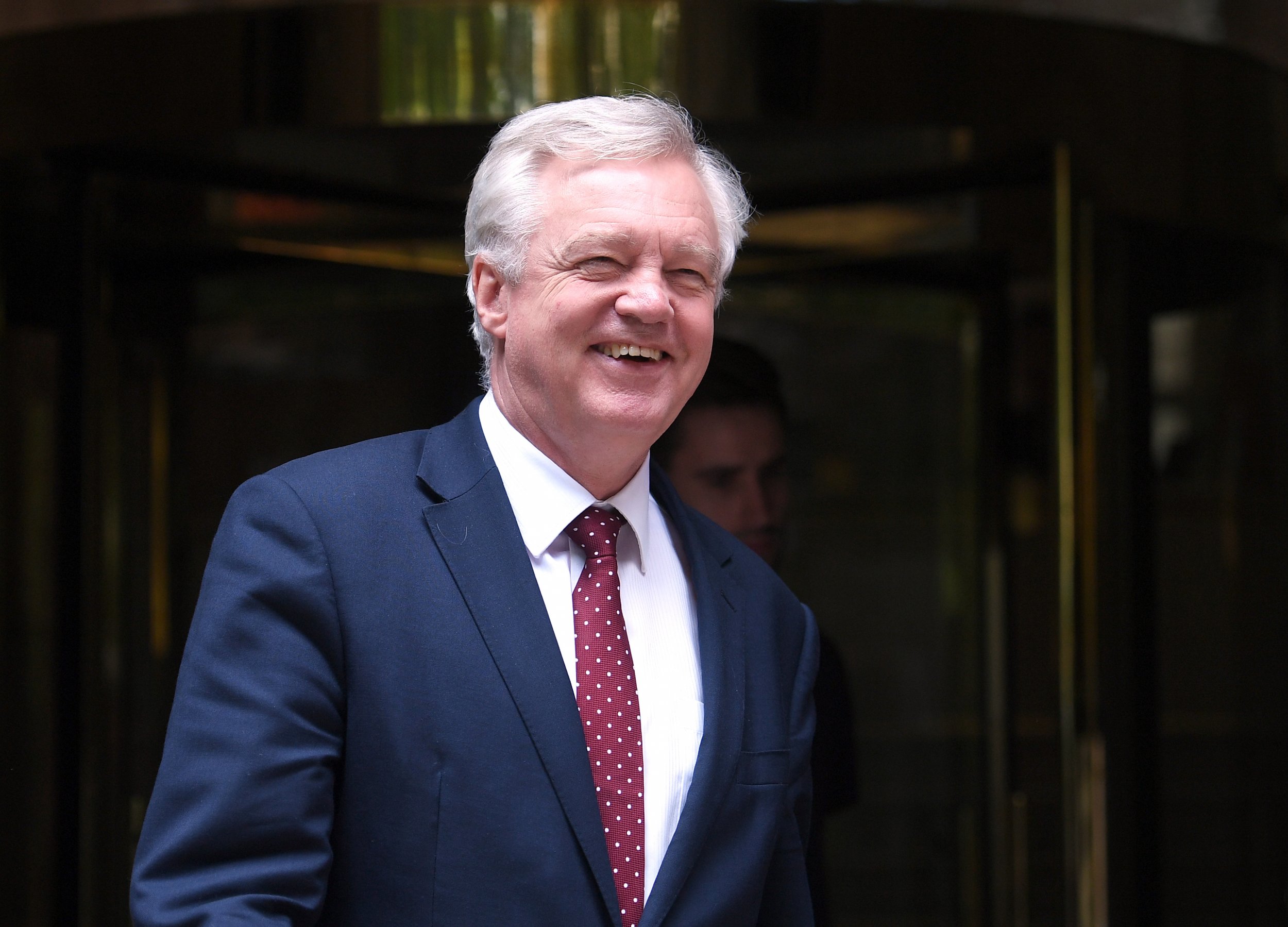
Of all the knotty issues surrounding the U.K.'s exit from the European Union (EU)—Brexit—one of the most sensitive is the question of the Irish border.
The future relationship between Northern Ireland, a province of the U.K. located in the north east of the island of Ireland, and Ireland, the independent EU country that makes up the rest of the island, has deep economic, political, and social implications.
As the U.K. government weighs back into the debate on the island's future with a new Brexit policy paper, here's what you need to know:
What's the problem?
At the moment, the border between Northern Ireland and Ireland barely exists in any practical sense.
When the 1998 "Good Friday agreement" brought an end to the decades of sectarian conflict in Northern Ireland, checkpoints between the two countries, once deemed necessary to keep an eye on political extremists and curb the illegal commercial activity that helped fund them, began to vanish.
Now, there are around 200 largely unmonitored border crossing points and something like 177,000 lorries, 208,000 vans and 1.85 million cars crossing the border every month.
But while it was the peace process—negotiated primarily between the British government, Northern Irish politicians, and Ireland—that led to this, the fact that both Ireland and the U.K. were member states of the EU made it much easier to achieve.
As EU members, the U.K. and Ireland had similar regulatory regimes for business, and allowed free movement of goods, capital, services and people between them. The practical need for border checks was much less than it would be between two ordinary states elsewhere in the world.
When the U.K. leaves the EU, it plans to leave the single market and the customs union; the two institutions that have required these liberal arrangements. That means there might be a need for border checks between Ireland, which will still be an EU state, and Northern Ireland, which will leave with the rest of the U.K..
Whether to monitor immigration or to conduct customs checks on goods being transported, there will be new pressure to keep an eye on what's moving from one country to the other.
But any significant change to the Irish border threatens to damage business, and new barriers could also stoke old tensions. Making it significantly harder to travel between Northern Ireland and Ireland might enrage one half of the bitter Northern Irish political divide; the Republicans and Nationalists who eventually want to see a united, independent Ireland. Impediments to travel between Northern Ireland and the rest of the U.K., meanwhile, would be problematic for the Unionists; Northern Irish people who want the province to stay joined with Britain.
Just to add to the complications, the U.K.'s governing Conservative Party is currently in a loose deal with a Unionist Party, the DUP, to prop up its majority.
What's the answer?
On Wednesday, the U.K. publishes its proposed solution to the issue. It will call for one of two options; a "new customs partnership" between the U.K. and Northern Ireland, meaning no customs border is required at all, or a " highly streamlined customs arrangement" vastly reducing the amount of red tape needed to transport goods between the two states.
In terms of the movement of people, the British government pledges to maintain the "Common Travel Area," a pre-EU arrangement that allows British and Irish citizens the right to live and work in each others' countries. The government claims that this would remove the need for immigration checks on the Irish border.
The aim of the U.K.'s proposals is to rule out any "physical infrastructure" in terms of checks on the border.
The U.K., the Irish government and the EU authorities in Brussels have all said the Irish border question is a top priority, so political momentum is there to find a solution.
Will this work?
There is significant debate over each aspect of the U.K. government's proposed answer to this question.
On Tuesday, the EU responded to another British government position paper, this one on general future customs arrangements, by saying that it was not ready to talk about customs deals until other questions like the amount of money owed to it by Britain were settled.
By tying customs talks up with the Irish border question, which is higher up the agenda, Britain may hope to move that forward, but it's far from certain.
Meanwhile, on immigration, while the Common Travel Area will put Irish and Northern Irish citizens' minds at rest about their ability to cross the border, it doesn't totally defuse the issue.
A regime will need to be agreed to monitor people from other EU states so that they don't cross unchecked into Britain, or leave Britain and pass unmarked through Ireland and into the rest of the EU. That could still mean a system of some kind at the Irish border.
Uncommon Knowledge
Newsweek is committed to challenging conventional wisdom and finding connections in the search for common ground.
Newsweek is committed to challenging conventional wisdom and finding connections in the search for common ground.
About the writer
Josh is a staff writer covering Europe, including politics, policy, immigration and more.
To read how Newsweek uses AI as a newsroom tool, Click here.








